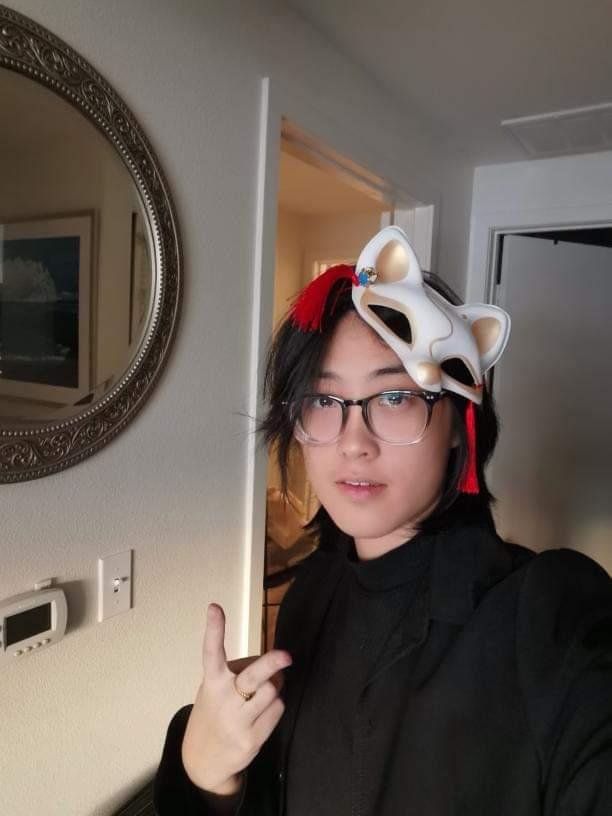Who Are Student Translators?
Lacole Yang
A mother tried to get her son’s attention by tapping him on the shoulder, confused by the events of OCSA Preview Day because of a language barrier, but her son refused to translate. Noticing that the mother was worried, Jamie Jung (CW ‘24) approached them and started answering her questions in Korean.
During Preview Days, Registration Week and other school-wide events, student translators keep an eye out for families that seem lost, wearing a white sticker with their name and the language they speak. They guide families through campus and interpret the map, according to Lyn Huang (CW ‘24), a translator in Leadership. Although many translators are from the Leadership class, some are volunteers from clubs like the California Scholarship Federation. The languages that are officially supported are Mandarin, Japanese, Korean and Spanish.
At each event, there are at least half a dozen families who are more comfortable speaking in another language. When Huang finds a lost family having a confused conversation, they greet the family in Mandarin and ask if any help is needed. From there, they will tell the family where to go or answer questions about their experience at OCSA. Huang said that “it helps them feel more welcome when they can have someone to talk to . . . It fosters a sense of community between OCSA Leadership representatives and the families.” Huang also enjoys translating because it gives them the opportunity to practice their native language outside of their home life.
Sometimes, it’s difficult for student translators to answer highly specific questions, like “how many people are in the graduating class, how many people got into whichever school, what are the various AP programs that your school offers,” said Huang. “They persist [in] asking [because] they want the perspective of a student.”
Not all languages spoken by prospective students are supported. “I think it is difficult to support languages that aren’t spoken as frequently. The school doesn’t ask for support because there are so few [speakers], but I think it is harder for those families,” said Milana Berhe (CW ‘24). She speaks Russian to families that seem uncomfortable with English, although Russian is not one of the officially offered languages.
Overall, the foreign-language resources of the school have gotten better, in Jung’s opinion. “When I was applying for OCSA, we didn’t have Korean, Mandarin or Spanish translators. When I would go around with my Mom, I would have to translate for her. But now we have those services. It’s progress being shown,” she shared.
When families can talk to someone in their native language, they feel more at ease with asking questions. Huang finds it heartwarming “to see families suddenly warm up. Suddenly they have someone they can ask. I help them get those answers, whether that’s to guide them to admin” or to use personal knowledge. Jung reflected, “I see relief in the parents’ eyes sometimes. When they’re able to get the answers that they need, I think it’s a good experience, helping them go through that.”


